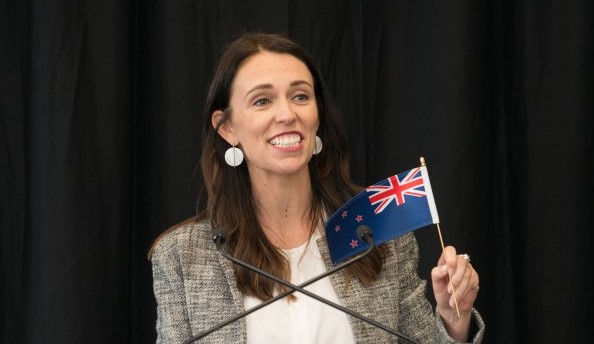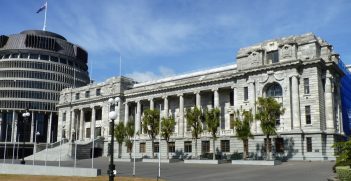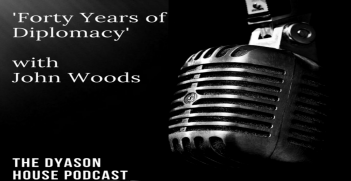Small State Diplomacy in Challenging Times

Through the judicious exercise of small state diplomacy, New Zealand has been able to exert a significant influence on international politics despite its limited hard power.
This is an extract of the Sir James Plimsoll Lecture presented by the AIIA Tasmania Branch in conjunction with the University of Tasmania and Department of Foreign Affairs and Trade on 29 October 2018. For the full speech click here.
New Zealand understands that our foreign policy must continue to reflect our values and reinforce our interests. In part, this is because New Zealanders expect this of their representatives. As Prime Minister Ardern has put it, when New Zealand speaks, it must be with credibility. When it acts, it should do so with decency.
But this also reflects a clear-eyed understanding that acting in this way is also key to advancing our interests. Simply put, small states cannot command influence through raw power. Nor can they afford to make their way through duplicity, capriciousness or obstructionism. Our national interests can only be advanced if our partners know us, value us and trust us.
In other words, the very way kiwis expect us to act – with courage, humility, honesty, fairness, pragmatism and kindness – also just happens to be the best way to maximise our influence and advance our interests abroad.
But what about the actual practice of small state diplomacy? Having distilled our interests from our foundations and values and decided the direction of effort, how does a small state actually go about prosecuting its interests?
Plenty has been written since Thucydides about the strategies and practices that small states can adopt. Personally, I like to think in simple constructs. And coming from a family of three brothers, these usually come in threes. For me, the small state diplomatic ‘playbook’ divides broadly into three broad principles: narrative, architecture and connections.
Narrative
The first is ‘narrative’. A small state’s influence is ultimately determined by its relevance. This in turn depends on its ability to tell its story and to sell its values and ideas. It must be seen by partners as both interested and interesting: as engaging and engaged. Or as another Greek international relations theorist, and sometime senior New Zealand diplomat, Vangelis Vitalis has described it, this means small countries need to be engaged in a constant process of protecting, burnishing and investing in their reputation.
They must build their “value proposition” carefully, remain acutely aware of it and continually reinvest in it to ensure that it offers partners insight, creativity and credibility on a broad set of issues. In New Zealand’s case, our value proposition stems from the domestic foundations and values I listed earlier, together with our international legacy. This includes our track record of multilateral engagement; our historic and ongoing hard power contributions; our economic and trade leadership, and our instinctive understanding of the concerns of other small countries, above all the critical connections between economic, security and environmental factors, especially for the Pacific.
It is those contributions which make the small state “relevant” and enable it to leverage, protect and ultimately advance its own national interests. But it also means that small states need to become more self-consciously self-promoting. They need to get out and sell their story and their ideas.
Architecture
The second principle is architecture. This goes to the idea that small states can best project their influence by amplifying it through constituencies, force multiplication frameworks and shared rules and norms. At one level, this is about doing all we can, both individually and collectively, to embed ourselves into emerging architecture and to buttress the existing frameworks which reflect our values and level the playing field in our favour.
But at another level it is also about being open to, and active in driving, new arrangements which are open and transparent and consonant with our values and interests. Small countries do not have the luxury of waiting for invitations. Using their ‘value proposition’ they must be active in building constituencies that can magnify their influence and achieve critical mass in lobbying major powers.
In New Zealand’s case, these efforts could range from the traditional Canada Australia New Zealand (CANZ) groupings in multinational forums, through to more bespoke constructs with non-traditional but like-minded partners. Examples of the latter include our participation in the Small Advanced Economies Initiative with Singapore, Denmark, Israel and Finland; the WTO “Friends of Fish” grouping, which seeks to reform global fishing subsidies; the G20-adjacent “Friends of Fossil Fuel Subsidy Reform”; or our support and advocacy for Small Island Developing States.
Connections
The final principle concerns our connections. This refers in part to our stock of bilateral relationships. Like any country, we must continually build and reinvest in our portfolio, placing particular weight on those partners who either share our values or long-term interests; those who are accessible and have influence; but also those that could play a spoiling role with respect to the other two categories.
The same principle applies to our trade relationships. Trading a range of goods and services across a range of markets, and securing investment from a range of sources, helps underpin New Zealand’s prosperity and insulate us from the vagaries of the international economy. And importantly too, it means maintaining and leveraging connections at home. Foreign policy is no longer the exclusive preserve of foreign ministries. It demands a “network approach” taking in all aspects of government, business, cultural and societal contributions.
Fortunately for small states, a small, agile, cohesive and responsive system is an intrinsic advantage. But we can and must do better at building and leveraging its potential.
The Trans-Tasman Relationship
Finally, one of the most critical connections recommended for small states is the importance of aligning or integrating with a larger partner or bloc. Which of course brings me back to Australia and the trans-Tasman relationship.
Australia will undoubtedly remain our most important and influential partnership: our indispensable ally in the world. This is so much so that it goes beyond a standard international relationship and directly to all three of the principles I mentioned above. Our shared history, values, institutions, economy, people and partnerships make us an integral part of each other’s narrative and value proposition. We are united in our shared interest in, membership of and support for international rules and architecture. And our own world-leading bilateral ecosystem has helped underpin further integration efforts in both the Pacific and ASEAN.
And as for connections, a 2015 study by McKinsey Global Consultancy described us both as two of the most “connected” countries on the planet. It ranked us ahead of Canada-USA, Malaysia-Singapore and even the core EU member states France and Germany. As the McKinsey report made clear, our relationship is deeper and broader than nearly any other country and it is also incredibly intimate.
His Excellency Chris Seed served as New Zealand High Commissioner to Australia from 2013 to 2018.
This is an extract of the High Commissioner’s address at the Sir James Plimsoll Lecture presented by the AIIA Tasmania Branch in conjunction with the Department of Foreign Affairs and Trade and the University of Tasmania on 29 October 2018. For the full speech click here.
This article is published under a Creative Commons Licence and may be republished with attribution.





